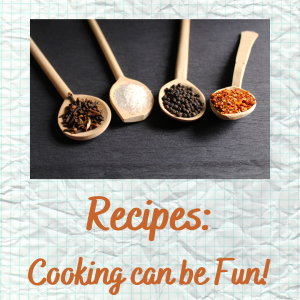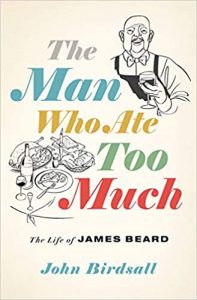“Not all our food history is set down in cookbooks”
(James Beard, American Cookery)
 The backbone of American cookery rests squarely on the shoulders of the late, great James Beard. A culinary arts foundation that recognizes chefs, restaurateurs, authors and journalists with prestigious awards is named in his honor. His life and experiences are extremely well-known and written about, revered as epicurean standards.
The backbone of American cookery rests squarely on the shoulders of the late, great James Beard. A culinary arts foundation that recognizes chefs, restaurateurs, authors and journalists with prestigious awards is named in his honor. His life and experiences are extremely well-known and written about, revered as epicurean standards.
As a food historian, James Beard is my idol. The above quote from him sums up exactly how I feel about the intersection between food and history, which is why I chose it for the introductory page of my book, The Thousand Dollar Dinner. After leafing through dozens of his cookbooks in my research, it really struck me just how much food and history are connected.
When I found out John Birdsall had published a new biography of James Beard, The Man Who Ate Too Much, I gobbled it up (no pun intended)! I had read other books and articles on Beard, but Birdsall––a gastronomic expert in his own right, having won the James Beard award twice––provides a fresh, more intimate look into the American cooking legend.
 Birdsall’s strength as a food writer shines throughout this meaty tome. Mouthwatering descriptive prose about cuisine is peppered throughout the book, such as the smoked and glazed “swaddled ham” that Beard’s mother Elizabeth would bring along on their trips to the Oregon seashore: “The ham was salty and pungent. Its smokiness and moldy specter would linger as the first taste on the coast…” He also provides a touchstone to what was going on globally during Beard’s lifetime, including both World Wars, the World’s Fair of 1939, the Vietnam War, Watergate and the civil rights movement, giving historical context into how and why these major events affected his experiences.
Birdsall’s strength as a food writer shines throughout this meaty tome. Mouthwatering descriptive prose about cuisine is peppered throughout the book, such as the smoked and glazed “swaddled ham” that Beard’s mother Elizabeth would bring along on their trips to the Oregon seashore: “The ham was salty and pungent. Its smokiness and moldy specter would linger as the first taste on the coast…” He also provides a touchstone to what was going on globally during Beard’s lifetime, including both World Wars, the World’s Fair of 1939, the Vietnam War, Watergate and the civil rights movement, giving historical context into how and why these major events affected his experiences.
Writing with candor, wit and vibrancy, it is as if Beard himself is speaking through Birdsall’s pen, retelling his colorful life and inviting us into his world. Birdsall doesn’t mince words, delivering a raw, revealing look into how and why Beard had to tread cautiously in order to navigate the world as a closeted gay man during the often-unforgiving twentieth century. His meticulous research and insightful style candidly convey Beard’s successes, failures, revelations and discoveries, painting a vivid picture of the family, friends, colleagues, and rivals that impacted his life. The level of detail helps gives awareness into Beard as a person (as well as a culinary expert).
It is a new, intimate look into the life and background of one of America’s all-time culinary greats, cheering Beard’s legacy and empathizing with his disappointments. It gave me even more “food for thought” about this trailblazing gourmand. Whenever I discuss culinary history, I always tell people, “so much of our history can be learned through food.” I think James Beard would agree.
Becky Libourel Diamond is the business librarian in New Brunswick Libraries, and is a published author and food historian.